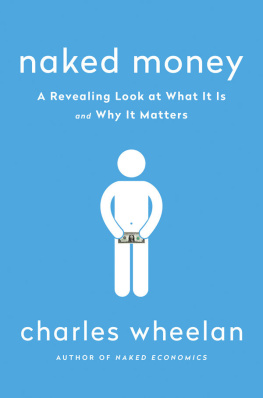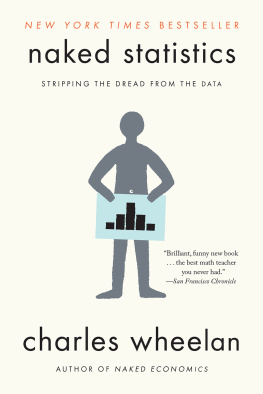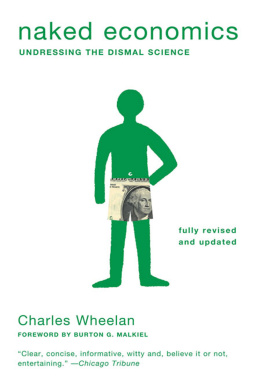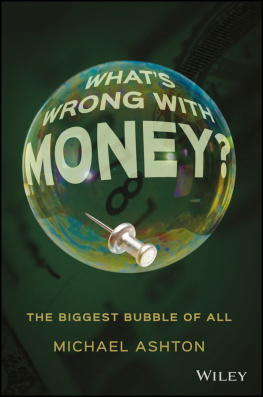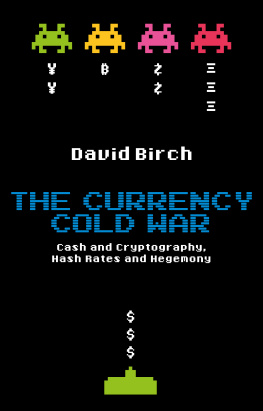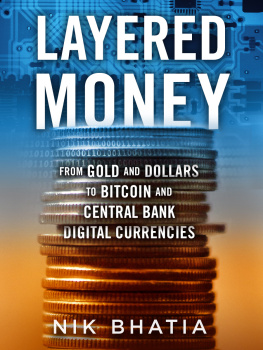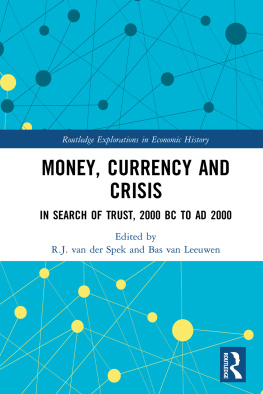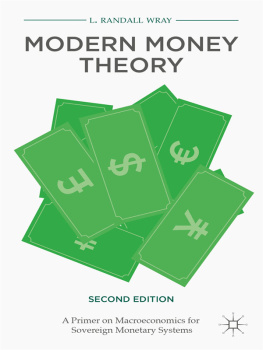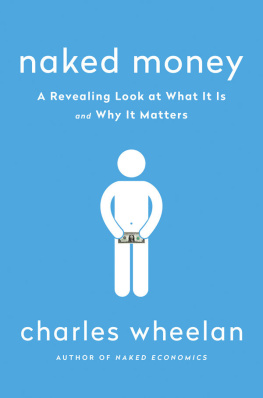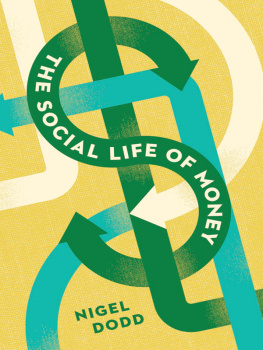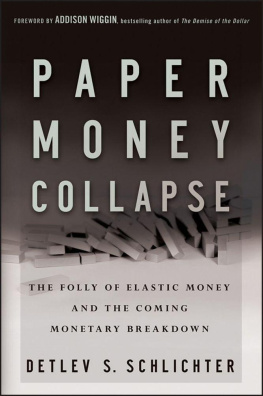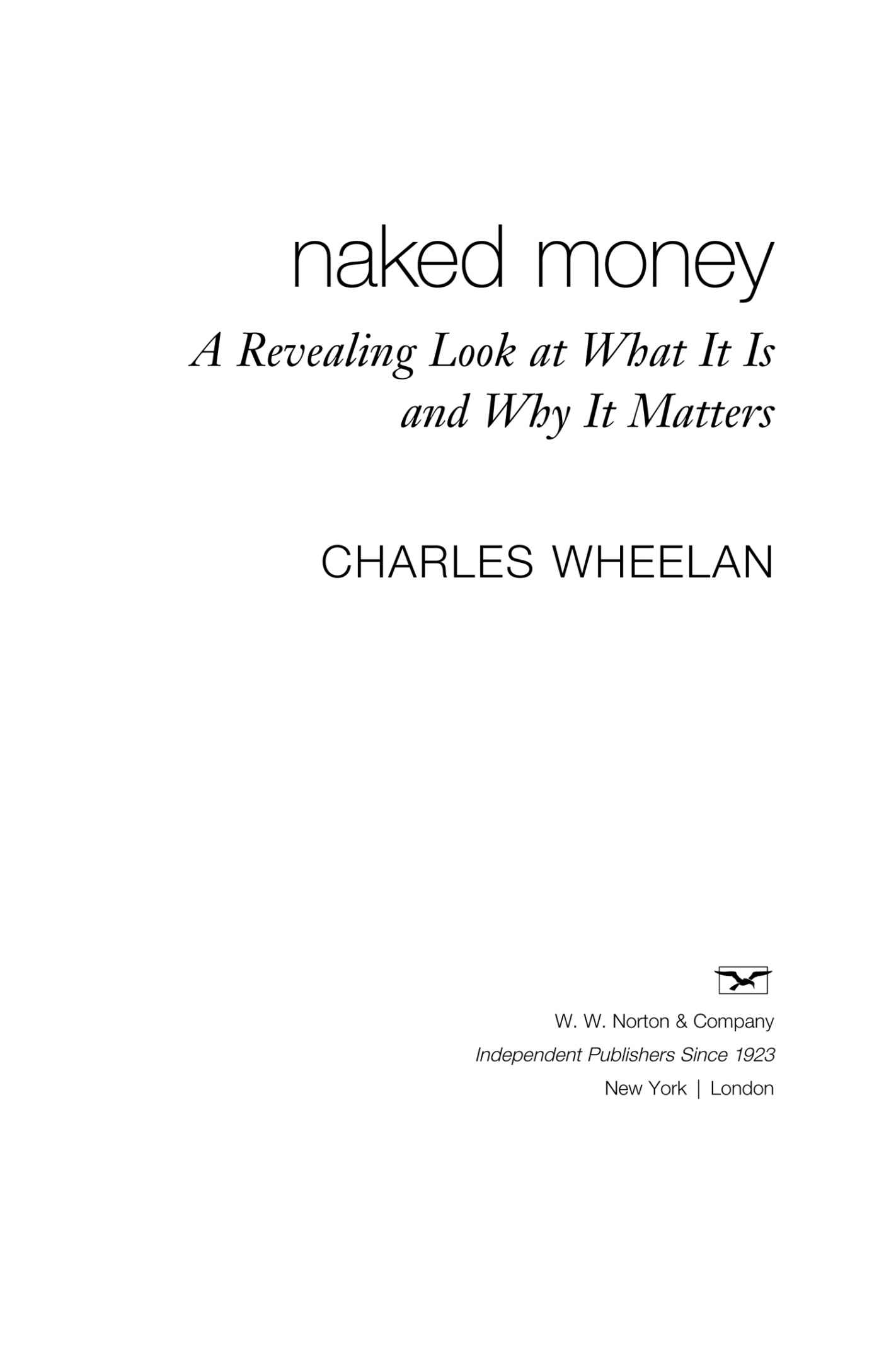
For CJ
Contents
PART I:
WHAT IT IS
1
What Is Money?
2
Inflation and Deflation
3
The Science, Art, Politics, and Psychology of Prices
4
Credit and Crashes
5
Central Banking
6
Exchange Rates and the Global Financial System
7
Gold
PART II:
WHY IT MATTERS
8
A Quick Tour of American Monetary History
9
1929 and 2008
10
Japan
11
The Euro
12
The United States and China
13
The Future of Money
14
Doing Central Banking Better
naked money
T ake a $20 bill out of your wallet and look at it closely. Its nice papera high-fiber content so it can go through the wash and come out okaybut still just paper. The engraving is nice, but nothing that approaches fine art. Perhaps most important, there is nothing on that bill promising you something in returnno gold, no silver, nothing. It is a piece of paper with no intrinsic value. If you took it to the Federal Reserve, the institution responsible for issuing American currency (which is then printed by the Treasury), the officials there would offer you nothing. Some of the Federal Reserve Banks, such as Chicago, have a nice little museum, but if you wave your $20 (or even a $100) around in the lobby and demand something tangible in return, you will get a strange look and maybe an escort out of the building.
So what is it worth? Not nothing. Its worth about $20. Thats not a silly statement, or at least not as silly as it seems. If you take a $20 to a sandwich shop, youll get a nice lunch for two. At a grocery store, youll get three pounds of chicken breast or a good bottle of pinot noir. Nearly everyone in the United States, and many people elsewhere in the world, have a very refined sense of what that piece of paper is worth. They would be only too happy to pick up your $20 should it fall out of your pocketwhich is not something you can say about every small piece of paper blowing down the street.
This is a book about moneyabout how those pieces of paper in your pocket have acquired such value, and how a bizarre convention, swapping seemingly useless pieces of paper for real goods, is so fundamental to a modern economy. Of course, while were at it, well look at the even more bizarre notion that you can write a check, wave a phone, or hand someone a rectangular piece of plastic and walk away with new furniture, office supplies, or even a car.
In fact, you can use someone elses money to do all of that. Money is not just about the bills in your wallet. Our whole financial system is built around a simple but powerful idea: credit. Banks, and the many institutions that function like banks, are intermediaries that match lenders and borrowers (taking a fee, of course, for the service). In that lending process, something remarkable happens: financial institutions create credit, which expands the supply of money. Think about this simple example:
1. I have $10,000. You have nothing.
2. I deposit my $10,000 in a bank, and that bank loans you $9,000.
3. I still own my $10,000 while it is deposited in the bank (and can write checks on it), and you now have $9,000.
4. The money supplymoney that can be spent right now on goods and serviceshas gone from $10,000 to $19,000.
Wow. That is the power of credit. Of course, the fact that you are spending money that technically still belongs to me is a source of both economic strength and instability. The good news: credit is what allows students to attend college, families to buy homes, and entrepreneurs to launch new businesses. The banking sector makes it possible for us to make productive use of other peoples capital.
The bad news: when credit goes wrong (as in 2008), the results can be devastating for the whole economy. We have a problem when I suddenly want my money and you are not in a position to pay it back, perhaps because you have used it to buy a house or a car or a restaurant.
The history of finance is also a history of financial panics . If lenders want their money back, and borrowers cannot readily produce it, the institution brokering the deal can fail. And when financial institutions are at risk of failing, more lenders rush to get their moneyvirtually ensuring that failure. We learned in 2008 that some very fancy-sounding components of the financial sector (the repurchase market, the commercial paper market, et cetera) are vulnerable to runs when people get nervous, just like banks were during the Great Depression.
When the system works well, money and credit lubricate it and empower human ingenuity. When the system breaks down, as it did in 2008, the financial edifice implodes at huge human cost. This is a book about that, too.
A central bank, whether it is the U.S. Federal Reserve or the Bank of England or the European Central Bank, is the institution with primary responsibility for managing all this. Central banks are charged with maintaining the value of the currency and protecting the stability of the financial system. (In the United States, the Federal Reserve has the added mandate of using its powers to promote full employment.) These institutions are vested with remarkable powers, including the exclusive right to create new money.
Yes, the U.S. Federal Reserve can just make new money. And yes, that is a power that requires enormous discretion. Since 2008, central bankers have taken on oversized importance. More Americans can probably name the recent Fed chairs (Yellen, Bernanke, Greenspan, and Volcker) than the most recent four chief justices of the Supreme Court (Roberts, Rehnquist, Burger, and Warren).
Ever since the financial crisis, there has been a political battle in the United States over whether the Federal Reserve is doing too little to help the economy recover, or too much. Low interest rates help to put more Americans back to work and raise the wages of others. On the other hand, low interest rates punish savers and can, if they are too low for too long, cause inflation. During the 2012 presidential election, Republican candidate Rick Perry described Fed Chair Ben Bernankes aggressive response to the financial crisis as treasonous. (For the record, this was an absurd and inappropriate statement, but it certainly gives one a sense of the politics.)
There is nothing new about that, by the way. Perhaps you remember from history class William Jennings Bryan and his famous 1896 Cross of Gold speech at the Democratic National Convention. The Federal Reserve had not yet been created at that point, but Bryan argued that high interest rates were punishing indebted American farmers and the solution was more money (specifically, money backed by silver in addition to gold).
To connect the dots, Rick Perry wanted less new money. William Jennings Bryan wanted more. I dont think they would have liked each other. To the larger point, this is a book that explains what the Fed does, how it does it, and why it matters.
America is not alone in any of this. Other countries also have small pieces of paper you can use to buy things. The money in those places causes political battles, too. Across the Atlantic, the Germans and the Greeks have been bickering for years like a seventy-year-old couple trapped in a loveless marriage. These two countries, along with seventeen others in the European Union (and a handful outside it), have adopted a common currency, the euro. The single currency was launched nearly two decades ago with high expectations for bringing the nations of the continent together, politically and economically. The luster has been fading from that grand experiment. Under the euro, some of the least productive economies on the continentGreece, but also Italy, Spain, and Portugalhave struggled. Specifically, they have lost some of the most important macroeconomic tools that come with having ones own national currency rather than sharing one with an economic powerhouse like Germany (e.g., setting interest rates and managing the value of the currency). The future of the euro is still in question.
Next page
